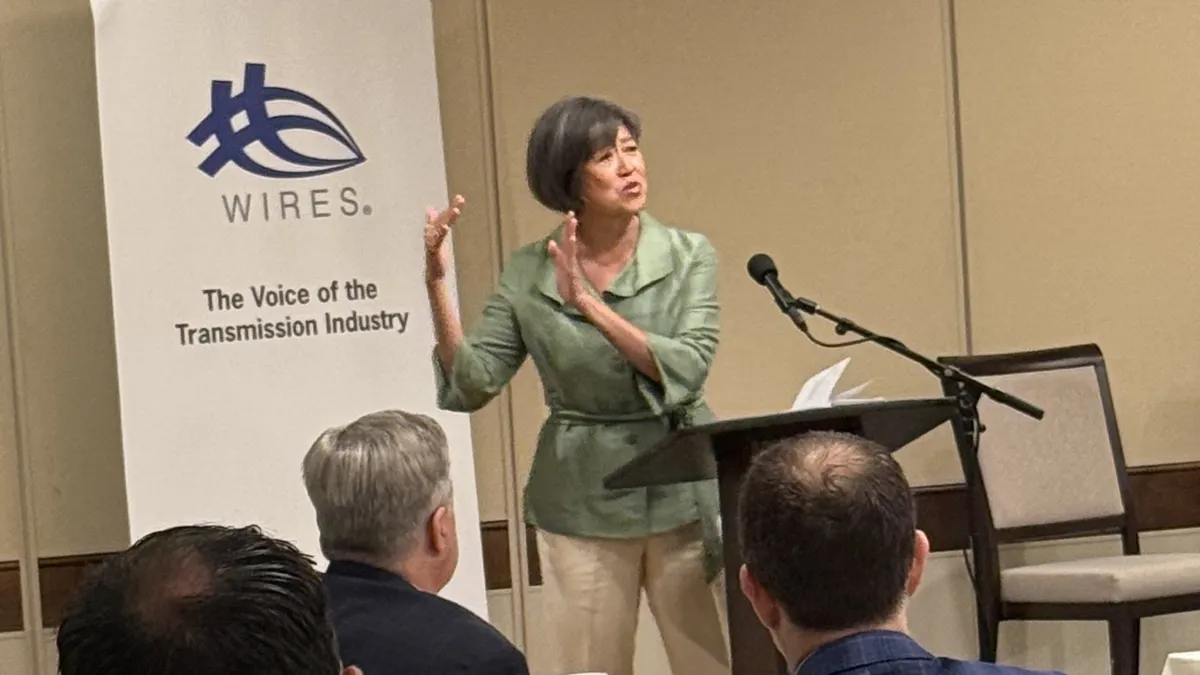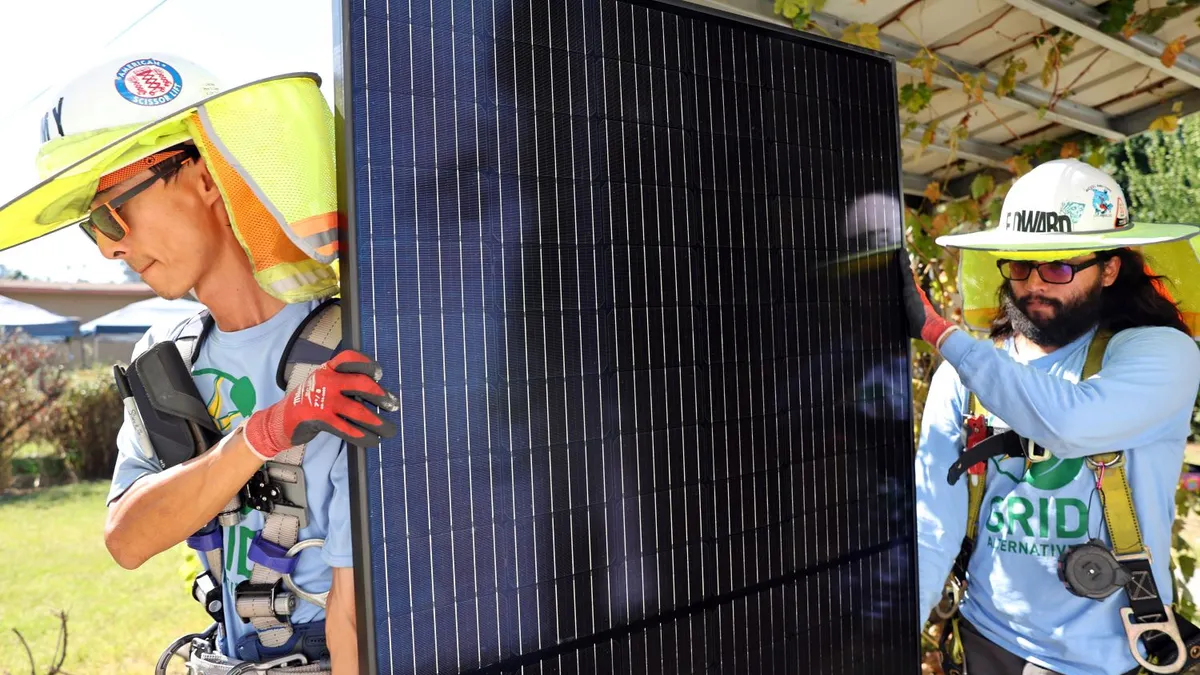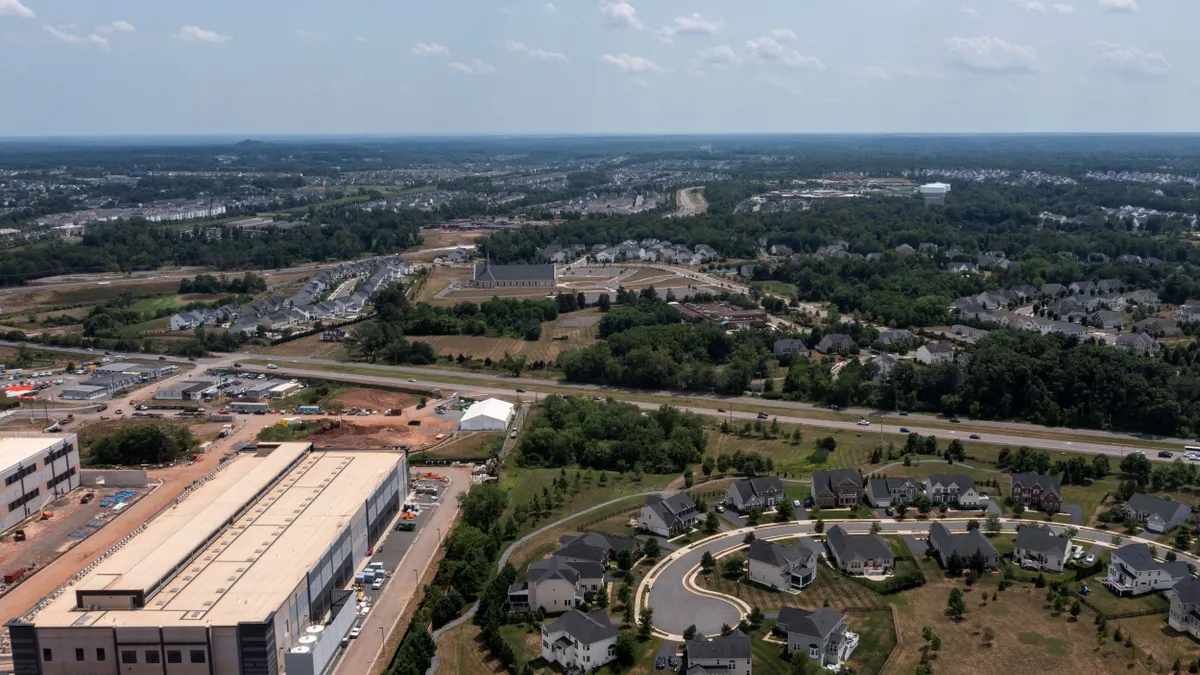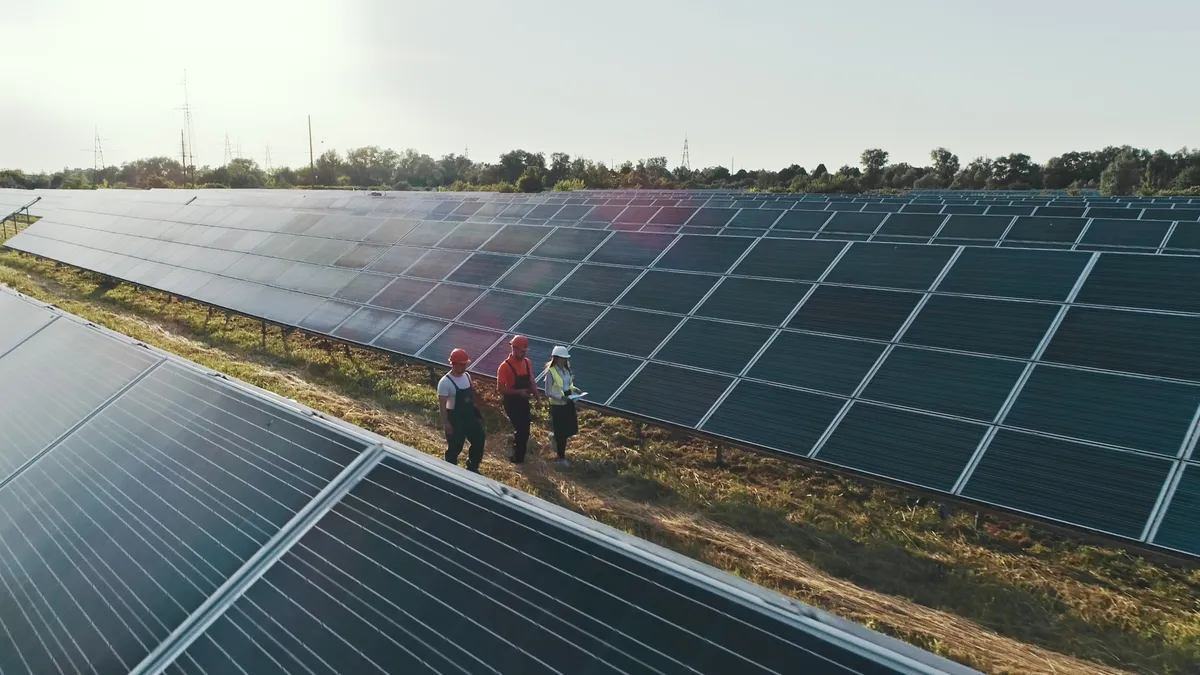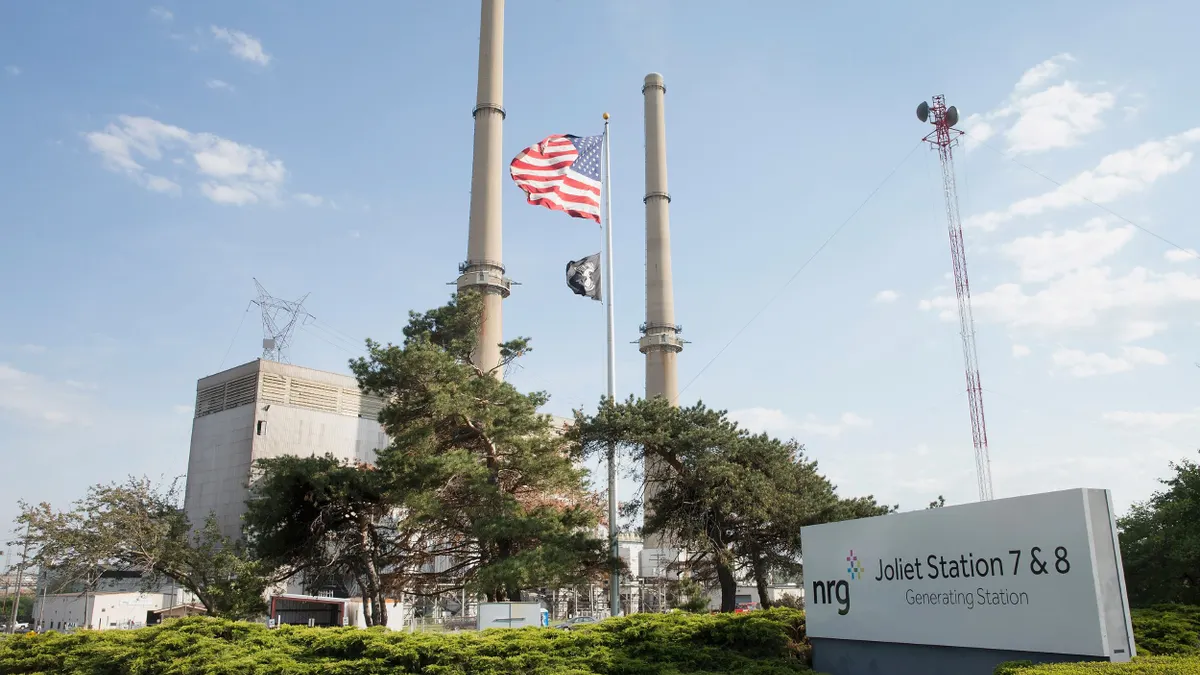Former Vice President Joe Biden holds a narrow lead over President Donald Trump as results continue to trickle in from several swing states. Meanwhile, Republicans have likely held their majority in the Senate and flipped eight seats in the House, chipping away at Democrats' previous 35-seat majority.
At the local level, as in previous elections, energy is less prone to partisan politics.
Two state-level ballots on clean energy have passed. One in Nevada reinforces a renewable portfolio standard (RPS) passed in the recent wave of state clean energy commitments. Another in New Mexico will upend the state's regulatory body that previously sought to undermine the state's clean energy law, in the eyes of its governor, the legislature and clean energy advocates.
Meanwhile, cities are continuing their push to pursue aggressive clean energy goals. Columbus established a community choice aggregation program that will have American Electric Power (AEP) provide the city with net-100% renewable energy by 2023. Denver voters have affirmed an increased sales tax that will fund emissions-reducing projects.
An amendment in Boulder may temporarily wrap up its push to municipalize, producing more mixed reactions. Ballot results as of Wednesday night support a continuation of the city's relationship with Xcel.
"I'm disappointed in the current status of measure 2C in Boulder," said John Farrell, co-director of the Institute for Local Self-Reliance (ILSR) and Director of the Energy Democracy Initiative, in an email. Local advocates say the city will not stop its push to get Xcel to go further, faster in its push for 100% carbon-free energy. And Farrell credits the city's years of efforts with the state's broader push on clean energy.
"I attribute a lot of the progress that's been made on clean energy in Colorado more generally to Boulder's pressure on Xcel through the municipalization movement," he said. "With no market competition, the takeover campaign was an important check and balance on Xcel's monopoly power. It also centered the local economic benefits of the shift toward renewable energy, an issue I fear will be less important to Xcel Energy even if it does invest in wind or solar."
Almost 200 local governments have a pledge to transition to 100% renewable energy, and eight states are committed to carbon-free energy. Here are five ballot initiatives that passed or are likely to pass this year, intended to aid states and cities in that transition.
Nevada Question 6: Reinforcing state RPS standards
Nevada’s Question 6 sets a 50% renewable portfolio standard by 2030, requiring utilities in the state to procure half their electricity from renewable energy by then, including solar, geothermal, wind, biomass and hydroelectric power.
As of Thursday morning, Question 6 was favored by 56.4% of voters with 75% of votes reporting.
Though Nevada passed Senate Bill 358 in 2019 that requires its utilities to generate 50% of its electricity from renewable energy by 2030, and aims for 100% carbon-free resources by 2050, the ballot initiative would protect the goal from future political headwinds by enshrining it into the state’s constitution, according to advocates of the measure.
Similar to the 2019 law, Question 6 would require the RPS to ramp up each year until 2050, though SB 358 sets a more aggressive pace, requiring a 29% RPS by 2023 versus a 26% RPS under the constitutional amendment.
NV Energy, the state’s dominant electric utility, has plans to double its renewable energy by 2023, and ultimately supported the 2019 bill.
On Oct. 27, the utility requested bids for new renewable energy projects to add to its portfolio, specifically seeking projects compliant with the state’s RPS standards. The company said it would also consider standalone storage systems and storage-plus-renewables proposals. Bids are due Jan. 6, 2021.
The utility did not return request for comment on the ballot initiative.
Question 6 also appeared on the ballot in 2018 — it passed with 59.28% of the vote, following a Democratic sweep of the executive and legislative chambers that year. In Nevada, ballot initiatives need to be passed twice to become part of the constitution. Former Nevada Gov. Ryan Sandoval, R, vetoed a bill similar to SB 358 before he was defeated by Democratic Gov. Steve Sisolak in 2018.
Nevada has the strongest solar potential in the country, according to the U.S. Energy Information Administration, as well as strong geothermal potential. Currently, natural gas powers the majority of the state’s electricity — 62.8% in 2018 — with renewable energy making up 28.6%.
New Mexico Amendment 1: De-politicizing utility regulators
New Mexico’s Amendment would shift the state’s Public Regulation Commission from a 5-member elected body to a 3-member commission, appointed by the governor and approved by the state senate.
As of Thursday morning, the measure had 55.6% of votes in favor with 97% reporting.
Amendment 1 reflects heightened tensions between state legislators, its governor and the regulatory body in recent years.
In 2019, the state legislature passed a joint resolution placing the amendment on the ballot for 2020. But Gov. Michelle Lujan Grisham, D, in August of last year indicated she wanted to expedite the process, because the ballot initiative, if passed, won’t take effect until 2023. The governor's office did not specify whether they would continue to pursue expediting this change after the assumed passage of Amendment 1.
She and members of the legislature were frustrated with the commission for “throttling job creation” in the state by slowing the retirement process for the San Juan coal plant as well as the adoption of renewables — the legislature had earlier that year passed the Energy Transition Act, which requires the state to reach 100% carbon-free electricity by 2045. Just a week after the governor’s announcement, legislative lawyers began exploring impeachment proceedings for three of the commissioners, prompted by state Sen. Jacob Candelaria, D.
The essential problem, Commissioner Cynthia Hall said last year, is that the regulatory body had become too political. She was among those in the state who had pushed for the commissioners to transition back toward being appointed rather than elected.
"My recollection is that the commissioners seemed to have better preparation for the job ... when they were industry professionals," she said in an August 2019 interview. "They had a higher level of competence."
Opponents of the measure included Commissioners Theresa Becenti-Aguilar and Jeff Byrd, as well as Chair Steve Fischmann. Byrd and Becenti-Aguilar were two of the commissioners facing impeachment last year, along with Commissioner Valerie Espinoza.
"Perhaps the special interest groups have decided that it may be easier for them to influence an appointment process rather than an election where the public has the final say. We believe that it is inappropriate for regulated entities to choose their regulators," Byrd and Becenti-Aguilar wrote in a March 2019 op-ed. Eleven states including New Mexico have elected utility regulators, while 28 have governor-appointed and one has a legislature-appointed body, according to Ballotpedia.
Lujan Grisham said in a statement she was "gratified" by the amendment's passage.
"[W]e need regulators with the credentials and experience to ensure reliable, affordable energy for our families and businesses – not career politicians," she said. "When the PRC is guided by qualified and independent experts with professional backgrounds and technical skills in energy, technology, finance and the law, all New Mexicans will benefit."
Columbus Issue 1: 100% renewable energy by 2023
Columbus, Ohio, voted affirmatively to allow the city to establish a program aggregating retail electric load within municipal boundaries in a 75.6% majority. The program would allow the city to procure 100% of its electric power with renewable energy by 2023, though it leaves an opt-out option available.
The aggregate city load will contract with American Electric Power (AEP) for supply, and the utility will construct new projects within the state. AEP Ohio did not respond to a request for comment on additional details of its plan, but The Columbus Dispatch reported the utility may need to temporarily purchase credits to get the city to 100% renewable energy in the next three years due to potential regulatory hurdles with siting new projects.
The mayor of the city of almost 900,000 people earlier this year set a goal of becoming carbon neutral by 2050, and this initiative is expected to be a cost-effective way for the city to reach that goal. Electric rates under the program have not yet been set, according to the Dispatch, but advocates say it is not expected to raise rates.
“Cost consideration is really important in laying what the path forward should look like. And this aggregation program won't be raising electricity bills,” said Stefan Schaffer, city strategist with the Natural Resources Defense Council’s American Cities Challenge.
Local control over renewables is seemingly the best way to reach 100% renewable energy goals, according to Farrell. Only cities with control over their energy systems have been successful thus far and, "[f]or everyone else, it's an aspiration," he said.
Columbus will become the third largest city in the U.S. to form such a program, indicating a larger regional appetite for clean energy progress, said Schaffer. Hundreds of other cities in the state have adopted community choice aggregation programs and Cincinnati earlier this year announced plans to build the largest municipal solar array in the U.S. — 100 MW 40 miles east of the city’s downtown, expected to cover 1,000 acres.
“What's really exciting about this particular ballot initiative passing in Columbus is that it reflects a broader trend in the state and region that is almost detached from the polarized landscape,” said Schaffer. “People on both sides of the political aisle view this as an opportunity ... in the path towards a broader economic recovery.”
Denver Question 2A: Raising taxes to fight emissions
Denver, Colorado, Question 2A proposes to add an additional 0.25% sales tax within the city and county that would go toward climate-related initiatives, including investing in new solar and storage projects, and job training in renewable energy. In total, the initiative is expected to increase funding for climate programs $40 million per year, and increase the sales tax from 8.31% to 8.56%.
As of Wednesday afternoon, the initiative was favored by 63.87% of the vote.
Denver is aiming to reduce its carbon emissions 40% by 2025, 60% by 2030 and reach 100% net-zero by 2040. The city council in August voted to defer the tax increase to voters through the November ballot, replacing a previous proposal that would have taxed residential and business energy use. A similar initiative in Berkeley, California, appeared to have failed Wednesday afternoon.
Other initiatives that would be supported under the measure include neighborhood-based environmental justice programs, resilience programs for vulnerable communities, clean transportation programs and energy efficiency. The measure will not increase taxes on essential items such as food, water, fuel, medical supplies and feminine hygiene projects.
“There are still a lot of votes to be counted, but so far it looks like Denver residents used their vote to show how much they value our climate and our future,” Denver City Councilman Jolon Clark, who backed the bill, said in an email. “2A funds will allow us to quickly act to help protect our land, air, and water while leading the way on how cities can tackle these issues head on. Our frontline communities and our communities of color are disproportionately hurt by climate change and when 2A passes, it sets a new bar for how we act to address the inequity while addressing climate change.”
Boulder Question 2C: A compromise with Xcel on municipalization
Question 2C in Boulder, Colorado, will decide whether the city should enter into a 20-year franchise agreement with its current utility, Xcel Energy, or continue its efforts to create a city-run utility. The ballot initiative is part of an ongoing settlement between the city and the utility.
As of Wednesday evening, 53% of voters were in favor of the agreement with Xcel, the Boulder Daily Camera reported.
Driven by budget pressures triggered by the COVID-19 pandemic, the city in August reached a settlement with the utility, after beginning discussions in April. Boulder has been trying to form its own municipal utility since 2015, but ran into a number of hurdles including resistance from the utility and customers over projected costs.
Under the franchise agreement, if approved by the city, Boulder would still be given the right to opt out of Xcel’s service and begin again pursuing a municipal utility in 2026, 2031 or 2036. The city could also terminate the agreement in 2022, 2024 or 2028, if Xcel Energy fails to meet key emissions benchmarks.
Advocates in the city opposed to the settlement say they will continue to work toward more ambitious climate goals for Boulder.
"Boulder has learned that there are alternate electricity providers ready to bring our city 80% to 100% renewable electricity at a significant savings compared to Xcel," said Julie Zahniser, an advocate with EmpowerOurFuture.org, which was opposed to 2C, in an email. "If Xcel is not willing to accelerate its pace and make its price more competitive, we will continue to work toward a more competitive system for the state of Colorado."
Boulder's mayor, in a statement, acknowledged how divisive the issue had become for the city.
“We appreciate the passionate efforts on both sides of this issue and recognize that while many in our community celebrate, others are disappointed,” said Mayor Sam Weaver. “I pledge to redouble our efforts to unify our community. Climate and energy issues are urgent and difficult to face divided, and I hope that we can come together as a community to face challenges and seize opportunities.”
Xcel said it was "pleased" by 2C's likely passage.
"We are stronger working together to advance our shared goals to reduce carbon emissions and believe we can serve Boulder and meet its energy goals," the utility said.
Correction: Only cities that have control over their energy systems have been successful in implementing 100% renewables goals, according to Farrell. An earlier version misstated Farrell's position with regard to Community Choice Aggregations.









